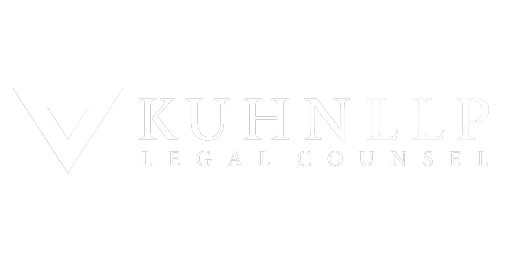Like shoring up blocks for a solid foundation, HAVAN Chair, and President of Shakespeare Homes & Renovations Mark Cooper, walks us through finding the right builder for your home building project.
Listen here, or download on your favourite app
Podcast Partners
Check out FortisBC for their latest rebates and information on renewable energy options.
BC Hydro offer Power Smart solutions, including rebates and more!
Powered by Rami Films
Distributed by Buzzsprout
Listen on your favourite streaming app
About the Speaker
Raised on the North Shore in a family of artists, Mark found his interest after taking the construction course at Carson Graham high school in 1983, before graduating from the BCIT construction program. A journeyman carpenter and a home construction contractor for more than 25 years, Mark incorporated Shakespeare Homes in the early 1990’s.
As a long-standing member of the HAVAN (Homebuilders Association Vancouver), Mark is the 2020 Chairman of their Board, also serves as the Chair of its Renovation Council and is active in its seminars and training events. As well as mentoring newer construction companies and trades, he supports the school district’s on-site introduction to construction by hosting regular site-progress visits for grade 11-12 students. Mark has a keen interest in building science and energy efficient techniques as an award-winning Built Green and Energy certified builder.

Win a gas BBQ, compliments of FortisBC! Simply like and share HAVAN’s new podcast, Measure Twice, Cut Once on your social channels, and you will be entered for the chance to win! Valued at over $1,000 be sure to share this podcast! Contest closes November 30th. Details
Here's the Full Transcript of this Episode
Jen:
Welcome to Measure Twice, Cut Once the podcast from HAVAN, the Homebuilders Association Vancouver.
Mike:
from code to closets
Jen:
Safety to skylights
Mike:
We’ll take you behind the walls and all things, home building and renovation
Jen:
And give you the ins and outs from the experts on what you should know
Mike:
in plain language
Jen:
about home building design and renovation
Mike:
I’m Mike Freedman,
Jen:
and I’m Jennifer-Lee. Now that you’re here, why not hit subscribe? And you’ll never miss an episode.
Mike:
Don’t forget to share with your family, friends or anyone else, you know, who might be thinking of a project in their home now, or in the future.
Jen:
We have Mark Cooper from Shakespeare Homes and Renovations. He is the president of Shakespeare Homes and Renovations. And he’s also the chair of HAVAN.
Mike:
Yeah. Mark is a heck of a great guy and he’s going to talk a lot about builder licensing, but at the same time, he’ll also talk about some of the red flags and some of the other things that he’s seen out there that he was going to share with us as well. Hey, welcome to the show.
Mark:
Thanks for having me guys. I’m looking forward to today. It’s going to be fun.
Jen:
Can you tell us a little bit about your company?
Mark:
It’s been around a few years on the North Shore, I’m trying to think how many years now we set up in the early 1990s and we specialize in predominantly large structural renovations and in recent years into custom homes. So it’s been a good journey. Here’s a fun fact. We are over 400 projects now for Shakespeare on the North Shore, which is a lot of doorknobs. And so, you know, walking down the street, Christmas shopping is always fun. I don’t get to really get it done. It seems like every store I stop in for half an hour because I see clients of mine. So I’m pretty fortunate actually to have the North Shore as my living community and have got to know a lot of people. Maybe mayor next, maybe that’s what I should do.
Mike:
I was going to ask, are you running?
Jen:
You can run in a few more years.
Mark:
It’s been talked about, just kidding.
Jen:
Mike and I will do your campaign commercials
Mike:
I’m most excited about the four hour permit approval process. That’s about to happen on the North Shore as soon as our new mayor takes the office.
Mark:
Yes, well over the counter permits of course.
Mike:
Mark. How many years have you lived on the North Shore? Are you from the area originally?
Mark:
I was actually born in North Van and so the first sort of six or seven years of my life I spent there. And then my mum and dad are from the UK and off, we went back to England. They were having trouble deciding where they wanted to live. So I spent another couple of years in England and then they moved back. And then when I was, I think I was 11 or 12 years old and we went back to England one more time and I spent another, almost four years there and then came back and I haven’t been back to live there since. So North Van has been home.
Jen:
I love the name of your company. I’m a huge Shakespeare buff. Is that any link to your English heritage on why you chose the name?
Mark:
I’ll have to tell you the very short version of the story. So there’s a little bit of Vancouver heritage here. So my father’s from Darby, England. When he moved here, one of his close friends from Darby had already arrived in Vancouver and his name was Ralph Shakespeare. And for those renovators, you’ll love this. He was a wall-to-wall shag carpet salesman back in the sixties. And everybody back then was covering all this beautiful hardwood floor with carpet. And so Ralph worked at Woodward’s Department Store at Oakridge and my dad being his friend and recently immigrating here wanted to help him promote his business, said, you know, Ralph give me some business cards. His response was, I don’t have any business cards. Everybody knows me as Ralph. My last name is Shakespeare. People will remember that. And I work at Woodwards Department Store, which was really the only one in town. Later, my dad formed a sign company called it Shakespeare Signs. My dad retired, I took over the name. So I kept that little sort of story that my dad sort of put in my mind why he called his sign company Shakespeare Signs was that somebody would remember it. You know, it has a connotation to quality and it’s something that’s easy for people to remember.
Jen:
I love it. I always love hearing origin stories. I think it’s so cool.
Mike:
I only ever got a chance to meet you at this stage in your career. And we don’t really get a sense of how you get here a lot of the time, but these little stories really add a personal element to it as well. And can you talk to us a little about what you do in HAVAN? Cause you’re not just a member you’ve done a little bit more than that. Talk to us a little about what you’ve done in HAVAN and part of the reason why you love being as actively involved as you are. I mean, HAVAN has been a great anchoring for me. I have my company I’ve been able to, I use a lot of the resources they have with training my own staff over the years, getting to know a lot of great trades, people, suppliers, and so forth and, and a lot of guidance, even though I’m older than most of the fellows that I call my cronies. I’ve had the great pleasure of being guided through some that are a few years older than me and many that are much younger than me, who have lots of good advice, you know, working in the construction industry, every day is a new day. There’s nothing sort of precise about it. So that’s been great. As far as my involvement, you know, I’ve been on the board of directors, for many years and I’m quite proud to be the current chairman for the board and working with Ron Rapp and all the staff at HAVAN has been a big delight and it’s been really enjoyable and I’m proud to be a member.
Jen:
If somebody is looking to find a builder, where do you start to make sure that you find the right one?
Mark:
HAVAN of course, is a great resource, on their website has a tremendous search engine for finding the right builders and renovators, you know, everyone’s of course going to do their own search engine. You know, things like that. Talk to the neighbours. They get a sense of who’s working in their neighborhood. People need to meet a series of people in order to get, not just, you know, the grounding to who they’re going to work with. But I think that it’s all about getting perspective on their project from different people. I tell my project managers, the same thing is that if you’re going to get only one electrician come through, you’re only going to learn what he knows about the project. And if it’s a renovation, if it’s a large scale renovation, there’s a lot to learn about from any trade. So if you get multiple trades come in and actually your scope of work starts to get more refined as you go on. And so from the consumer perspective, even with a new build, it’s the same thing. The more builders you talk to, the more you learn about your property, the challenges your property might have, the complications of your design. You know, things like that. You’ll just learn more and ultimately you’ll develop a better team going forward.
Jen:
Also on that note, how many is there like a secret number of how many people you should be interviewing when it comes to building your home? Is it like..
Mark:
Just one. [laughter]
Mark:
You know, I think generally a lot of people say they’re going to meet with three. You know, it’s a bit offputting when somebody says I’m meeting with six or seven. That’s a lot. So I think they just need to do a little bit more research upfront. So they’re not wasting a lot of people’s time.
Mike:
I want to get a little bit deeper on the hiring process for a builder because now I’m looking at it through the lens of a homeowner because I don’t have a background in building. Obviously there are some things you want to do. The first thing you want to do is get a copy of our free members directory. That’s where you’re going to find the best people to work with. But beyond that, you’ll find your name and a lot of other great people in there. How do we shortlist it?
Mark:
I think we’ve learned a lot lately, globally, and certainly in our local market about support local or, or buy local. It doesn’t really matter where you are in the lower mainland. And every roadway is under construction and traffic is a problem. Commuting is a problem. Hiring people is a problem. So hiring local, I think is really the secret sauce to that success like the long-term. I think doing your research in the local market. I can remember back in the old days, it seemed like, you know, consumers would go back into the lumber stores, they’d go into the Hollyburn Lumbers and the Dick’s Lumber and they would ask who the best builders were, but today everything is at your fingertips.
Jen:
I think you also have to be aware nowadays, we have so many different mediums of seeing photos and if you’re choosing an architect or an interior designer, then they have a style that maybe you want to have. But when you’re looking at photos that a builder’s done, you know, there’s Photoshop and everything like that. So I think sometimes driving by the physical project and see, hey, does that house look like a quality home? Is there any other tips that you can give possible homeowner that wants to build a new home, of different ways they can find out if the builder is a good choice or not?
Mark:
I’ve had literally so many times people go to our website and say, I don’t think we can afford you. Your photos are just amazing. And I have to go through this sort of almost undoing process to explain that, of course, we’re going to show the nicest products, just like going into an automobile dealership, they’re going to put the most beautiful cars in that showroom all lit up with the nice lights. I think that the pictures are one thing, you got to meet these people and you really have to understand who they are, what they stand for, you know, is the project about price? Is it about quality? Is it about how quickly can you do it? And things like that. Cause you can’t have all three. So you brought the driving by. And I think that’s really important, and I’m always shocked at how some building sites are left, heaps of garbage strewn out onto the street, even excavations, you know, like pouring, you know, spoils water pumped out on the street. To me, that’s not someone who has care and attention to not only the neighbours, but to the home that’s underway.
Mike:
Mark, do you think it’s worthwhile to ask for references?
Mark:
Absolutely. Yeah. You should definitely have references and talk to a couple of customers and you know, be prepared if you’re the consumer and you’re going to phone up a couple of customers. There is no perfect contractor. There’s no perfect builder or renovator, you’re going to hear things that you might not want to hear, but it’s about getting a general story from multiple references, three or four that basically come down into this guy is a good hire. He might be slow on invoicing or what have you, you might hear a little things, but it’s really about the core values of that builder and what they stand for.
Jen:
I always tell people to be wary of Google reviews too, because anybody can get behind a keyboard and, you know, say not truthful things. So it’s like always be a good judge. Like, do they have a ton of negative reviews from word of mouth or whatever? Or do they just have like one or two because sometimes people are just not the right fit with each other. I think it’s so important to find the right fit between builder and client as well.
Mark:
I think as builders, you’re also interviewing the client, it’s a two-sided street. And some of the things that I need to ask the client, you know, apart from their, you know, their budget and their timing and things like that. I like to ask a lot of questions and finding out a little bit about what their experiences are. Have they ever renovated before built a new house before? Have they done any major projects of any kind where they’ve had, you know, ups and downs with the experience because there will be, you know, it’s just nature of the business and it’s all about how you deal with that. And, and I find that some people aren’t willing to realize that that, depending on their careers, depending on their personalities, and there can be some concerns that would be given off to I think the builder. But I do ask people, you know, do they understand what is involved in the length of time for design the building permit process, the consultants that are now required to be involved in a new build it’s there’s many and trying to step them through everything. Because to me, all of that work upfront and understanding and comprehending it is far more important than just – can you build this? Here’s some drawings, can you build this mr. builder? Like the whole journey is difficult.
Jen:
Yeah. People don’t realize that things are going to take a while. Like if you need inspections or certain permits and everything, or whether it can be a huge impact in building as well. And so I think when you are with the client, you have to like, like you said, take them through step by step because they don’t realize they just are like, Oh, I want my house done tomorrow. And sometimes that’s not the case.
Mark:
It’s not the case, yeah. I’m trying to think of the name of that show its like, “move that bus”. You’ll do this house in a week. It just doesn’t happen, but that’s not realistic. So yeah, there are a lot of holdups and delays that are in construction. Things just do take time. I think in terms of a new build, they seem to go together very quickly once the hole is dug and the forming and framing goes up and the roof is on. And then, you know, the sheathing goes on the outside and the home just sort of seems to hang there for a long, long time, because you’re not really aware of all the work that’s going on inside that you can’t see walking up and down the street with your dog every day.
Mike:
Let’s take a couple of minutes and have a brief break and would like to say a huge thanks to our industry partners and our sponsor, FortisBC, for all we’ve done to help us bring this podcast to life.
Jen:
Yeah. Thank you so much for supporting us with this podcast Measure Twice, Cut Once to benefit homeowners and help them make the right building decisions the first time, and please review us and follow us. We would love it if you shared it with your family and friends, to inform them about all this great knowledge that we are sharing in the building industry, and you could win a barbecue from FortisBC.
Mike:
Oh, now we’re talking my language. You know, a barbecue can do so much, including at this time of year, as we move into the fall season, you can take a lot of really good root vegetables and cook them up. So a lot of people think barbecue is just for those of us who eat meat. But the fact of the matter is you can bring people to your table, feed them all sorts of food.
Jen:
Mike, I like where you’re going with this, but we’re going to have to have a longer discussion. We don’t have much time. We got to get back and continue our conversation with Mark Cooper, from Shakespeare Homes and Renovations about how to find the right builder for you. And I know this is something my friends have asked us all the time. And a lot of people just don’t know to ask this question in the interview process with the contractor. But can you talk about how important is to ask about the liability that the contractor holds?
Mark:
It’s actually a great question, because I think it’s, you know, most businesses today have an insurance policy and it has liability, but there is a bit of a gray area while you’re under construction that both the builder’s liability and the homeowners insurance policy, don’t always bridge the gap. And so consumers should read up on builders risk, or course of construction insurance. And that’s a policy that rides, you know, the best way I can describe it sort of in between builder’s liability insurance and the homeowners insurance. Certainly if you’re doing, you know, a large scale project, you need to notify your insurance company that you’re underway, they will want to sell you that policy, that course of construction insurance, if they can. I think that it’s worth looking to perhaps the builder, because if the homeowner wants to take out that policy, the homeowner’s insurance won’t list the builder as a recipient of any claim. So the builder’s not going to want that because if materials go missing, you know, there could be where we’re having like theft happening this week on a project right now in the city of Vancouver. In a really, really nice area. And there’s a big question mark, about insurance. Fortunately, we have course of construction insurance that covers all of that. Insurance is a really big part in liability insurance is part of that. But having your project insured to cover both you as a homeowner, as well as the builder as well, it’s a, it’s meant to be covering both parties.
Jen:
Ya, it’s so important to think of, because like you say, you don’t want to start pointing fingers everywhere. Like who’s responsible?
Mark:
That’s exactly what happens, right? Is that you have a lot of materials or fixtures that come on. And, and these, these pros out there they’re watching, they see the, you know, the appliance company roll up and load all those appliances into the house and drive away. And nobody’s living there. It’s, you know, there’s a lot of money involved. And long before that there’s building materials and right now building materials are going way, way up in price. And, there’s a lot of value there.
Jen:
You don’t want to lose that stuff.
Mark:
Nope. No.
Mike:
This seems like something you want to get in writing. And it also seems like something as a homeowner, we should be talking to you about right away is protecting ourselves and you from any liability. Because correct me if I’m wrong, anyone who comes on that site and gets injured is the responsibility of the homeowner, unless there’s proper insurance in place, correct?
Mark:
There’s WorkSafe BC, which is an insurance policy that protects the workers that the contractor is carrying. But there are elements there where the homeowners could be responsible if there’s negligence on their part or anything like that. You know? So if there’s a, you know, not unrelated area of the property, somebody hurts themselves could be that, you know, that’s more of a liability against the homeowner. So insurance has to be in place. It’s not as expensive as most people think. And it’s like anything you hope you never need it. But if you happen to need to it’s best to rest assured it’s in place,
Jen:
It’s definitely worth it to get. The other thing I wanted to ask you is say, somebody hires a contractor. And then the relationship six months down the road starts going south. What would be your advice for that homeowner?
Mark:
You know, I’ve been there on both sides of the fence to be fair. It’s not easy. It’s a relationship. We’ve all been in relationships, personal ones and professional ones. It’s a hard journey to manage at times. And largely like, you know, in your personal life or professional life, when there’s money involved or big sums of money, it adds strain and stress. So at times, you know, I think it is just the cues. You got to just sort of be watching the cues of builder needs to watch the cues. The consumer needs to watch the cues. And if there are things that just aren’t feeling right, don’t let it ride out, like address it early on. Hopefully it’s resolvable. And hopefully you don’t really need to rely on your contract and you should have a really thorough contract that covers both sides of the fence.
Jen:
That’s another thing people don’t think about is contracts because I’ve heard so many horror stories of people like, Oh, there was no contract. I just hired them.
Mark:
You know, the thing about contracts is interesting. They’re often sort of a daunting thing to go through, even for the builder. I mean, to go through and understand each project and complete the contract is, you know, cause some things might be not relative to certain. You have to maybe change the data to be to be a renovation, to a new build, or what have you. When you’re going through the process with the consumer, they and hopefully are reading it really carefully. It flushes questions that makes everybody address them because there’s a lot of language in a contract that needs to be understood. So I’m a big fan of them. I, and it’s not about protecting my business. It’s about protecting the relationship as a whole because there are things in construction that need to be understood and who is responsible for them. And if something were to go wrong, whether it’s just a falling out or something just doesn’t happen in terms of schedule, in terms of budget, in terms of change orders, things like that need to be talked about. So if you put it in writing and everybody understands the language, then it’s sort of done and dusted, put that away, move forward with it.
Mike:
Mark, as you’re going through this process, are there any red flags that you think consumers should be aware of as they’re doing this? In other words, if you were in our place and you didn’t know what you knew, what’s some of the stuff that you might hear that you get your spidey senses, tingling.
Mark:
Like if it’s a big project, I simply tell them right up front that we’re not working if there’s no permit, you know, we’re going to go through the process if there’s a permit required. I think that spidey senses, I like that. I use that quite a bit myself. I think that says a lot. I honestly, gosh, my wife, Kelly, she calls it a hundred percent of the time. If I come home and I just started talking about my day, I just, you know, chatting about a client I met or something going on. She picks up on the way I’m describing it. And she says right away, that’s a red flag. She just picks up on my dialogue and maybe the lack of confidence or something in that item. So, you know, consumers need to listen to their gut. I find that most people they’re very excited about getting going on their project. That’s the one thing like you hear all, we’ve been thinking about this for a long, long time and they’re excited. And sometimes when somebody is really excited about, you know, buying something or moving forward, they forget about all those other steps that are really important to go through. So you got to govern yourself, you got to go through the process methodically and slowly and avoid those situations. But if you do have the spidey senses, you know, maybe write yourself a note, find out what it’s all about and address it upfront. Don’t wait.
Mike:
Now I think at this point, we all understand that permits are important, but not everybody has accepted that. That is such a crucial part of the building process. Can you talk about two things? First of all, number one, what a permit is for, and what’s the purpose of a permit and two, it’s obviously to protect people from liability. Can you talk about how people are protected by engaging the permitting process, as opposed to attempting to circumvent it.
Mark:
Plainly put in terms of building a new home, there’s really no way around it. You need a building permit. And so that is just, you know, flat out fact. If you’re being told that some builder can build your house without a building permit in the lower mainland, that’s simply not the case. Where you see more newsworthy things or projects under construction without permits are, it’s quite shameful actually, but the municipalities are unable to police it, not willing to police it. It’s really not their jurisdiction. So if you’re getting into a renovation that you’re taking out a wall and that wall can be, in your opinion, the builder’s opinion, even the building officials opinion, it could be a non-supporting wall. By law, it still states you need to take a building permit out. If you’re adding windows, you require a building permit. If you’re removing significant amount of dry wall for your renovation off the ceiling or an exterior wall, you need a building permit. So there’s a variety of little check boxes that you’ve got to go through. And I know, you know, generally, most people don’t want to invite the municipality into their homes. That’s just kind of this thing in their mind. But you know, as a consumer, you put so much trust, so much money in the hands of the contractor that you met a few months ago. And, and now shouldn’t you be worried about who’s checking him or her. And so it’s really the municipality have their checks and balances at certain milestones during the construction process to make sure that that’s done correctly. And if you are doing those structural changes, you need to have a structural engineer, which would be a consultant involved in your project.
Jen:
Right. And what kind of education does a builder need to have?
Mark:
Yeah. So building new homes, there is fortunately, there’s a licensing process now. So in order to be licensed as a builder, they have to spend 40 hours of education. They allow you 20 hours of that. If you’re involved in a project in the current year. So every year you required to have 20 points, essentially it’s a point an hour 20 of those points get credited back. Essentially, if you’re under construction without a new home, the rest of it is classroom. So really, really happy to see the education program. HAVAN’s got some tremendous programs running all the time, in class and online where you have to be, there’s no negotiating. You have to be a participant in that training and you have to be there and present. You have to go through it and then you get a certificate back and you calculate all your points and then you get your license renewed every year. With renovations it’s actually not regulated currently, other than by what we talked about earlier with the municipalities, with their checks and balances, there’s a bit of a movement to try and get renovators certified or licensed. And I’m a big fan of that I think its necessary. It’s absurd that a renovator with no training can add a 2000 square foot addition to your home or a whole third story to your two story bungalow or anything like that. Without knowing that they’ve had the formal training to do it. Now, there’s great renovators out there. Don’t get me wrong. And a lot of them are not licensed builders, but they do attend the training and they do, they do count for something. So I think really at the end of the day, when you’re hiring somebody, you want to know what their level of expertise is and what their level of training is. And, and maybe they can actually substantiate that by saying, look, I’ve been to like 30 hours worth of training every year. I know what I’m doing. And then of course, if they’re working with a good structural engineer, then that’s a really good, strong team.
Jen:
Ya, it’s so important to know that, because like I said, a lot of people are just like, Oh, I can just hire whoever. And it’s like, no, you’ve got to check in to see if they have education and the renovation thing, I didn’t know. Like, and that’s crazy to me that you can add a full story.
Mark:
It is actually pretty crazy to think about that.
Jen:
Okay. So we were talking about red flags. So Mark, what are the top three questions you should be asking the contractor before hiring them because now you’ve narrowed down maybe to three contractors that were time before, but now you’ve got to ask them those important questions.
Mark:
Well, it’s, I think the process is really part of it. So if we’re talking about a new build, you know, do they have the experience, can you see some examples of work that is relatable to your property? Not that they can just build a new house, you know, if your lot is unique, complicated, are they familiar with that? And often the case, the builder themselves may not have built on a complicated lot, but they have, you know, a good team around them. Okay. So I think understanding their expertise, the other item would be understanding their system in place. So how do they operate on a day to day basis with communication, for example, you know, do you get daily updates on what’s going on in the job? How is that coming to you? You know, what is going on with the schedule and how often do you as a consumer get updated on your schedule, you know, an extending schedule or an expanding schedule usually means more money, just something to keep in mind, it’s just something that needs to be considered. It doesn’t always happen that way, but if the, if there’s scope creep or something’s taking longer, if there are guys they’re working, it’s costing you more money. So that’s something to consider. And speaking of money, I think that the, you know, outside of schedule, actual budget reviews and setting up something that works for you and the builder in terms of, you know, checks and balances, every builder is different on the way that they bill. So understanding that whether they’re billing, you know, every two weeks is our model. And I quite like it because you get a more refined look at your checks and balances, or are they building in milestones? So foundation, you know, excavation foundation, you know, framing and so forth, whichever way the builder does or whichever way, you and your builder are most comfortable. You really need to be setting up a review of that. Like, how are we doing kind of review? How is the schedule doing, how is the budget doing? My phrase that I use with my staff is what’s our burn rate. And what I’m referring to is the ratio of, labor dollars, being burned per day in relation to what’s allocated and what’s left. So, you know, simply put, if you’ve got a $50,000 number and you’re three quarters of the way through the job, you know, you’ve burned up all your labor, you’ve got a problem.
Jen:
And if you’re interviewing contractors, should you also be asking them if they are going to be the point person on your project? Are they going to be the one that you’re with because you want to develop that trustworthy relationship. So if they give you somebody else that you’ve never met, that might not be the person you want to work with.
Mark:
That’s a great question. I can use my own example. Like, you know, people will meet me very first meeting and a couple of meetings after that, for sure. And then eventually it’s turned over to a project manager. So it’s actually a question that I like, because I might have to change it up a bit at my own company and make sure that they’re meeting with the person that they’re talking to every day, we do interconnect, a project manager, a little further into the process, but I think that it’s definitely who are they going to be talking to? You know, is it just the site lead? Will they get along with that person? How is their communication skills? Those are good questions to ask for sure.
Mike:
I want to sort of tie a bow on some of the things you said. We talked about having a point person who you deal with talking about the team of people behind you, who you’re working with. The systems in place, and even the budgetary reviews when all of these things are done properly and effectively as you guys do, the results are significantly better than they’re not. Can you think of a project in the last little while that comes to mind, which was both challenging and rewarding, where having these things in place and having these foundational parts of your business already set up really well changed how the project went and why it made it rewarding as it was challenging.
Mark:
Well, when I hear about challenging and rewarding, there’s one actually project comes to mind and all of the theories we’ve just discussed are somewhat shelved at that moment because my client had a project with a broken foundation down the middle, and he was on a very, very steep embankment. And at the bottom of the bankment was a creek and the house was essentially slowly working its way down into the creek valley. And the foundation, as I mentioned, sort of snapped into two, and initially it was, we’d like to build a new house. Okay. So we went to municipality, we looked at, at some of the setback requirements and they have a couple of, you know, I think most people may or may not realize that in your property, on your private property, you have a front setback, which is often, you know, people know that’s where the waterline shut off is on their property. And then the distance from your neighbours on the side, you have side yard setbacks, and you also have a rear yard setback. In the case of a property with a slope, you have top of bank, which is a fairly new sort of measuring stick that is placed on builders as to where you can place any permanent structure in the North Van municipality it’s 45 feet or so 15 meters I think is the number, from top of bank and the top of bank has determined, not just where you think it is or where I think it is. It’s where a land surveyors determined where it is. And then the district has to approve that. Of course, that they also agree that that’s top of bank. And in this particular case, the house was non-conforming front to back. If we were to build a new house, we would have to put it further towards the creek for the front setback. And because of the top of bank, we had to move it further towards the street. So it was non-conforming front to back. And the municipality essentially wouldn’t allow the new home to exist on this property. So we were forced to renovate the house. And in order to do that, we now needed a team of specialists. Okay. And this is something I’ve mentioned a couple of times that, you know, strength in numbers when you’re into complicated projects and getting the consultants that not only most importantly, that the builder trusts.
Mark:
I think that was a really critical is that if you’re talking to an experienced builder or renovator, they’re going to know who the guys they can trust in trades, and consultants being the engineers. So in this example, we had to get a geo-tech engineer involved, that’s for your soil stability, structural engineer, and so forth, and our designer. And we had to actually fix the top of bank with a large structural wall to shore that up so that we could actually fix his foundation and then renovate it and by renovate it, I mean, we literally took it to foundation and rebuilt it. And so he got a new house out of it with all the experience I have, couldn’t have done it without the team that we put together and the client trusted us. And that really is critical. And, you know, once you pick the builder, you gotta trust them. You may not understand the language. You may not understand why they do certain things when they do, but you do have to trust them. There’s a lot of moving parts. It’ll all be okay.
Jen:
Thank you so much for coming on the show today.
Mark:
It’s been fun. There’s lots of good questions. And even found myself thinking about all kinds of different parts of my business by answering them. It was good.
Jen:
Perfect. And if anyone wants to get in touch with you after this goes live, has any questions about the building industry? How can they get in touch with you?
Mark:
shakespearehomes.com can find us there. And I really pride myself on coming out to see the clients. So look forward to meeting some new people.
Jen:
Thank you so much. But before we go, of course, we’ve got our next episode coming up. We’re going to be talking about the topic that a lot of people don’t enjoy and that is budget. And we have a great guest and that is Matt Senft and he is from Sasen Homes.
Mike:
It’s going to be a good episode as well.
Mark:
Oh, good. Matt’s a really, really good guy.
Jen:
HAVAN stamp of approval!
Mike:
But that just goes back and speaks to who we are that we, we really do respect each other. We respect our fellow members and we try to promote each other whenever possible. We build each other up.
Jen:
Agreed. Thank you again.
Mark:
Thanks guys.
Jen:
This has been Measure Twice, Cut Once the podcast from HAVAN, the Homebuilders Association Vancouver, Thanks for joining us today.
Mike:
For notes and links to everything mentioned on today’s episode, go to havan.ca/measuretwicecutonce
Jen:
Follow us and review us to help empower homeowners like yourself to make the right decision, the first time. And automatically by doing so, you’ll be entered to win a gas barbecue courtesy of our friends at FortisBC.
Mike:
Whoa, Whoa, Whoa, Whoa, slow down. This isn’t just a gas barbecue from our friends at FortisBC. This is a precision cooking machine. The Napoleon Prestige P500 stainless steel, natural gas, barbecue. You can cook some great things on it. And if you know, barbecues, you know, this brand is an amazing brand and an awesome prize that I wish I could win as well. Until next time, this is Mike Freedman
Jen:
And I’m going to brush up on my knowledge of barbecues. I’m Jennifer Lee, reminding you to Measure Twice
Mike:
And cut once.

















